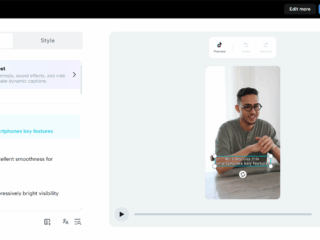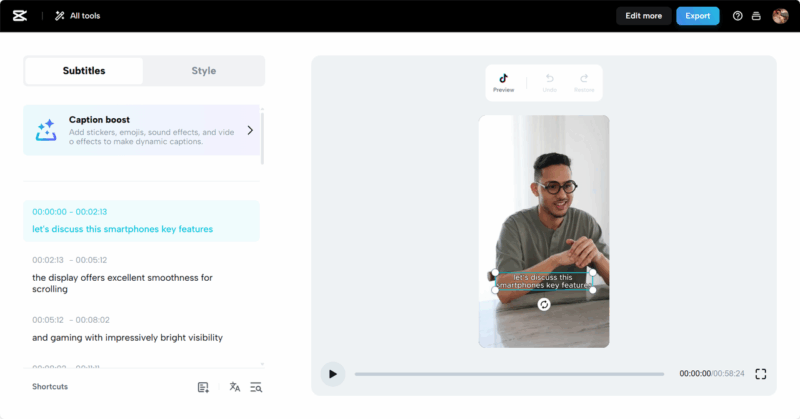
Deciding whether to sell your home before paying off your mortgage is a significant financial choice that can have lasting implications on your personal and financial landscape. The emotional weight of this decision cannot be understated; for many, a home is not just a structure, but a repository of memories and dreams. Yet, the practical considerations often press in, nudging homeowners to evaluate their circumstances and future goals.
In this increasingly dynamic real estate market, understanding the nuances of selling before mortgage payoff is crucial. On the one hand, selling could free you from the financial burden of monthly mortgage payments, providing a fresh start or the capital necessary for new investments. On the other hand, selling a home that is still mortgaged can complicate your financial situation, potentially leaving you with unexpected costs or an insufficient return on investment.
As we delve deeper into this topic, we’ll explore the pros and cons of selling before the mortgage payoff. We’ll examine the potential financial benefits, the emotional ramifications, and the practical logistics that come into play. By the end of this discussion, you’ll have a clearer understanding of whether this path aligns with your financial goals and lifestyle aspirations. Whether you’re contemplating a move to a larger home, downsizing for retirement, or relocating for a job, it’s essential to weigh these factors carefully to make an informed decision that serves your long-term interests.
Pros of Selling Before Paying Off Your Mortgage
When considering whether to sell your home before fully paying off your mortgage, it’s essential to weigh the potential advantages. Here are some compelling pros that might make this choice appealing:
Financial Flexibility
One of the most significant benefits of selling your home before paying off your mortgage is the financial flexibility it offers. If you sell your property, you can use the proceeds to pay off your mortgage balance, freeing yourself from monthly payments and interest obligations. This can provide considerable relief, allowing you to redirect funds into savings, investments, or other financial goals.
Access to Equity
Selling your home can unlock the equity you’ve built up over time. Even if you haven’t paid off your mortgage completely, you may have significant equity that can be tapped into. This cash can be instrumental in financing a new home, investing in a rental property, or even pursuing other opportunities. The ability to access substantial funds can open doors that were previously closed.
Market Conditions
In a thriving real estate market, selling your home can yield a higher return than if you waited until your mortgage is fully paid off. If property values are on the rise, you may be able to sell your home for more than your remaining mortgage balance, resulting in a profit. This profit can be reinvested, allowing you to take advantage of favorable market conditions without being tied down by your existing mortgage.
Relocation Opportunities
Selling your home can also provide the opportunity for a fresh start. If you’re considering relocating for work, family reasons, or simply for a change of scenery, selling before paying off your mortgage may facilitate that transition. It allows you to move into a new space that better fits your current lifestyle or needs, whether that’s downsizing, moving closer to family, or exploring a new city altogether.
Simplifying Financial Obligations
Finally, selling your home before paying off your mortgage can simplify your financial obligations. Homeownership comes with responsibilities such as maintenance, property taxes, and insurance. By selling, you can alleviate these burdens and potentially transition to renting or a more manageable living situation, reducing stress and allowing for a more streamlined financial profile.
In summary, selling your home to a sell my house fast High Point NC, company before paying off your mortgage can offer significant financial advantages and opportunities for personal growth. However, it’s crucial to evaluate your unique situation, weighing these pros against the potential cons, to make an informed decision that aligns with your long-term goals.
Access to Liquidity
When considering whether to sell your home before paying off your mortgage, one of the most compelling reasons to take the plunge is the access to liquidity that comes with a successful sale. Liquidity refers to the availability of cash or cash equivalents that can be quickly accessed to meet immediate financial needs or investment opportunities. Selling your home can unlock a significant amount of capital, offering you the flexibility to pursue various avenues that may enhance your financial position.
Imagine the possibilities: the cash from your home sale can be reinvested into a more lucrative asset, used to start a new business, or even funneled into funding your children’s education. This newfound liquidity can provide a cushion during uncertain economic times, allowing you to cover expenses without relying solely on your income.
Additionally, for those who find themselves in a fluctuating job market or facing unexpected financial challenges, having accessible cash can alleviate stress and provide a safety net. It can also enable you to make strategic decisions, such as purchasing a new home without the pressure of an existing mortgage, thus allowing you to negotiate better terms or find a property that truly meets your needs.
However, it’s essential to weigh this benefit against possible downsides, such as the emotional toll of selling a cherished home or the potential for investing in volatile markets. Ultimately, accessing liquidity through the sale of your home can be a powerful tool in your financial arsenal, but it’s crucial to assess your unique situation and long-term goals before making a decision.
Capitalizing on Market Trends
Capitalizing on market trends can be a game changer when it comes to deciding whether to sell your home before paying off your mortgage. The real estate market is often in flux, influenced by a myriad of factors, including interest rates, economic conditions, and buyer demand. By keeping a keen eye on these trends, you can strategically position yourself to maximize your profits and minimize financial strain.
For instance, if you notice an uptick in the housing market in your area—perhaps due to a new tech hub opening nearby or an influx of new residents seeking housing—this could be the perfect opportunity to sell. Homes in high-demand neighborhoods often sell quickly and at premium prices, allowing you to pay off your mortgage and walk away with a significant profit. Conversely, if the market is trending downward or if predictions suggest a downturn is imminent, it may be wise to hold onto your property until the market rebounds.
Moreover, understanding seasonal trends can also influence your timing. Historically, spring and summer months tend to see more buyers actively looking for homes. Listing your property during these peak seasons can give you an advantage, as competition among buyers often drives prices higher.
Additionally, consider the macroeconomic factors at play. For example, if interest rates are projected to rise, prospective buyers may rush to purchase homes before the rates increase, resulting in a surge in demand. Recognizing these patterns and trends can empower you to make an informed decision about the timing of your sale.
Ultimately, capitalizing on market trends requires a combination of research, intuition, and timing. By staying informed and being proactive, you can leverage these trends to your advantage, potentially turning your home sale into a significant financial opportunity.
Avoiding Interest Payments
One of the most compelling reasons to consider selling your home before paying off your mortgage is the potential to avoid ongoing interest payments. Mortgages typically come with interest rates that can add up significantly over time, often costing homeowners thousands of dollars over the life of the loan. By selling your home, you can free yourself from these mounting expenses and redirect your financial resources toward more productive investments or savings.
For many homeowners, especially those in a rising real estate market, selling can be an opportunity to capitalize on the equity they’ve built up. When you sell your home, you may receive a substantial profit, especially if you’ve made improvements or if the market has increased in your area. This profit can then be used to pay off the remaining balance on your mortgage in one fell swoop, effectively eliminating any further interest payments and allowing you to start fresh without the burden of debt.
Moreover, avoiding interest payments can be particularly beneficial for those who are nearing retirement or looking to downsize. By selling their home, these individuals can reduce their monthly expenses and increase their cash flow, allowing them to allocate funds toward leisure activities, travel, or even retirement savings. This financial freedom can significantly enhance one’s quality of life.
However, it’s essential to weigh the benefits of avoiding interest payments against the emotional and financial implications of selling your home. For some, the security and stability of homeownership outweigh the desire to eliminate debt, and the thought of moving can be daunting. Make sure to consider your long-term financial goals and personal circumstances before making such a significant decision.
Cons of Selling Before Paying Off Your Mortgage
Selling your home before paying off your mortgage can seem like an enticing opportunity, especially if you’re eyeing a profitable sale or a chance to relocate. However, it’s crucial to carefully weigh the potential drawbacks before making such a significant decision.
Financial Implications
One of the most immediate concerns is the financial burden that can arise from selling with an outstanding mortgage. Depending on how much equity you’ve built, you may not pocket as much profit as you anticipate. If your home’s market value has not significantly appreciated, you might find yourself in a situation where the sale proceeds barely cover the remaining balance of your mortgage. This could leave you without enough funds for a new home or to invest elsewhere.
Prepayment Penalties
Some mortgage agreements come with prepayment penalties, which can further eat into your potential profits. These penalties are fees that lenders charge when a borrower pays off their mortgage early, and they can vary significantly in amount. It’s essential to review your mortgage terms carefully to avoid any surprises that could diminish the financial benefits of selling.
Potential Market Volatility
The real estate market can be unpredictable. If you sell your home and the market dips shortly thereafter, you may find yourself in a challenging position when it comes time to buy a new property. This could lead to a situation where you are paying more for a lesser property or compromising on your desired location.
Rental Challenges
If you plan to sell your home and rent instead, you may encounter challenges in securing a rental property. Landlords often prefer tenants with stable incomes and minimal risk; if the market is tight, you might find it difficult to secure a rental that meets your needs.
Potential Loss of Home Equity
One of the most significant considerations when contemplating selling your home before fully paying off your mortgage is the potential loss of home equity. Home equity is essentially the part of your property that you truly own, calculated as the difference between your home’s current market value and the remaining mortgage balance. When selling a home, this equity is what can be realized as profit and reinvested into your next venture, whether it be another property, a business opportunity, or personal savings.
However, if you decide to sell prematurely, you may not fully capitalize on the appreciation of your home’s value, which has likely increased over the years. Real estate markets fluctuate, and selling in a down market can significantly diminish your equity. For example, if your home was worth $300,000 when you purchased it, and your mortgage balance is $200,000, you have $100,000 in equity. If market conditions force you to sell at $280,000, after paying off the mortgage, you would be left with only $80,000— a loss of $20,000 in equity that could have been retained had you waited for a more favorable market.
Moreover, there are costs associated with selling a home, such as real estate agent commissions, closing costs, and potential repairs needed to make the home market-ready. These expenses can further erode your equity position, making it crucial to carefully evaluate the financial implications of selling now versus later. If you have built substantial equity over the years, losing it can feel like a setback, especially if your long-term financial goals rely on that capital.
In summary, while selling before paying off your mortgage may provide immediate cash flow or the opportunity to seize new ventures, the potential loss of home equity is a vital factor that requires thorough consideration. Weighing the current market conditions against your future financial aspirations will help you make a well-informed decision about your next steps.
Selling Costs and Fees
When considering whether to sell your home before paying off your mortgage, one critical aspect to examine is the array of selling costs and fees that can significantly impact your financial outcome. Selling your home is not just about the sale price; it involves a variety of expenses that can eat into your profits or, in some cases, negate them entirely.
First and foremost, real estate agent commissions typically range from 5% to 6% of the sale price, which can amount to thousands of dollars. This fee is often split between the buyer’s and seller’s agents, incentivizing them to sell your home for the best possible price. However, it’s essential to factor this into your calculations, as it will directly reduce the amount of equity you can apply toward paying off your mortgage.
In addition to agent fees, there are other costs to consider, such as closing costs, which can include title insurance, escrow fees, and recording fees. These can commonly add up to 2% to 5% of the home’s selling price. If you’re selling a home that’s not in pristine condition, you may also need to invest in repairs or staging to make it more appealing to potential buyers, further eating into your profits.
Moreover, if you happen to sell your home for a profit, capital gains taxes may come into play, especially if you haven’t lived in the home for at least two of the last five years. This tax obligation can reduce your net gain from the sale, making it vital to consult with a tax professional to understand the implications fully.
Lastly, don’t overlook the potential costs associated with moving. Whether you’re hiring professional movers, renting a truck, or simply enlisting the help of friends, these expenses can add up quickly.
In summary, while selling your home before paying off your mortgage can seem like a viable option to unlock cash or downsize, it’s crucial to conduct a comprehensive analysis of all associated selling costs and fees. Being well-informed will enable you to make a decision that aligns with your financial goals and ensures that you maximize your investment in the long run.
Emotional Considerations
When contemplating whether to sell your home before paying off your mortgage, emotional considerations often weave themselves intricately into the decision-making process. Homes are not just structures; they are repositories of memories, milestones, and personal history. The walls may echo with laughter from family gatherings, the backyard may hold the remnants of childhood adventures, and the kitchen might be where countless meals were shared. Letting go of a place that has provided comfort and shelter can evoke a sense of loss that is both profound and unsettling.
Additionally, the emotional weight of financial obligations cannot be understated. Selling a home while still carrying a mortgage may stir feelings of guilt or inadequacy. You might wrestle with the thought that you haven’t fully fulfilled your commitment to the property or that you are somehow abandoning an investment that should have been nurtured until maturity. On the flip side, there might be a sense of liberation and excitement at the prospect of moving on to a new chapter in your life, be it a new job, a change in family dynamics, or a pursuit of personal aspirations.
It’s also important to consider how selling your home aligns with your broader life goals. Are you selling as a means to an end, such as funding a new venture or investing in a more suitable living situation? Or are you driven by the desire for financial freedom and the ability to start fresh? Reflecting on these emotional drivers can help clarify your motivations and guide you toward a decision that not only makes financial sense but also resonates with your personal values and aspirations. Ultimately, weighing the emotional considerations alongside the practicalities of selling your home will provide a more holistic view, helping you navigate this significant life decision with greater clarity and confidence.
Potential Benefits of Paying Off Your Mortgage First
Deciding whether to sell your home before paying off your mortgage can be a complex decision, and there are several potential benefits to consider if you choose to pay off your mortgage first.
One of the most significant advantages is the peace of mind that comes with owning your home outright. Living mortgage-free can provide a sense of financial security and stability, allowing you to focus on other aspects of your financial life without the constant pressure of monthly mortgage payments. This freedom can also enhance your overall quality of life, as you may find yourself less stressed and more capable of enjoying your home and its surroundings.
Furthermore, paying off your mortgage can improve your financial flexibility. With no mortgage payments to worry about, you may have more disposable income to allocate toward savings, investments, or even lifestyle choices such as travel or education. This financial cushion can be particularly beneficial during economic downturns or unexpected life changes, such as job loss or medical emergencies, giving you a safety net that mortgage obligations can complicate.
Additionally, owning your home without a mortgage can strengthen your negotiating position if you decide to sell. A mortgage-free property tends to attract buyers looking for a smooth transaction, as there are no liens to contend with. This can lead to a quicker sale and potentially higher offers, as buyers often perceive a mortgage-free home as less risky.
Finally, consider the emotional and psychological benefits of paying off your mortgage first. For many, a home represents not just a financial investment but a personal sanctuary. The sense of accomplishment that comes from fully owning your property can deepen your connection to your home, making it more than just a place to live—it becomes a lasting investment in your future and peace of mind.
In summary, while selling your home before paying off your mortgage has its advantages, taking the time to eliminate that debt can offer transformative benefits, providing both financial freedom and emotional satisfaction that can enhance your overall well-being.














